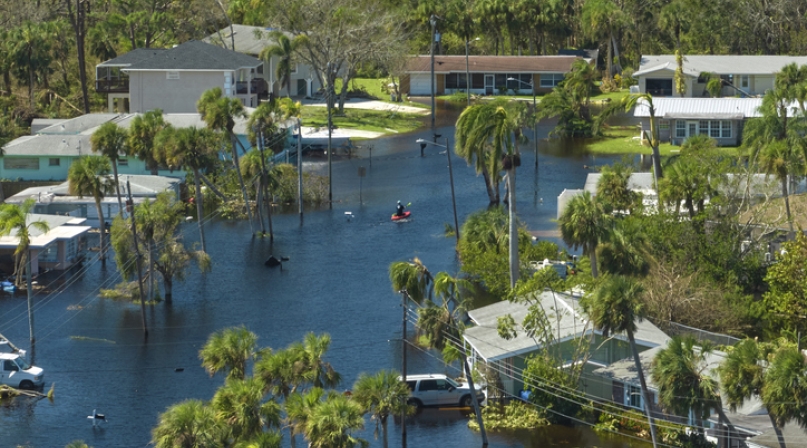Bipartisan, bicameral legislation introduced to reauthorize and reform the National Flood Insurance Program
Author

Brett Mattson

Julia Cortina
Upcoming Events
Related News

Key Takeaways
On June 22, Senators Bob Menendez (D-N.J.) and Bill Cassidy (R-La.), and Representatives Frank Pallone (D-N.J.) and Clay Higgins (R-La.), introduced the bipartisan, National Flood Insurance Program Reauthorization (NFIP-RE) Act of 2023 (S.2142/H.R. 4349). The legislation would reauthorize the NFIP for five years and make critical changes to the administration of the program including increasing affordability for policyholders and improving local capacity for mitigation efforts. Specifically, the legislation would:
- Cap annual policy premium increases at nine percent;
- Freeze interest payments on the NFIP debt to reduce borrowing;
- Provide a comprehensive voucher for low- and middle-income homeowners and renters;
- Increase transparency on FEMA’s new risk rating system, known as Risk Rating 2.0;
- Increase the maximum limit for Increased Cost of Compliance (ICC) coverage; and
- Boost funding for mitigation grants and modernize flood mapping
National Association of Counties Executive Director Matthew Chase issued the following statement in support of the bill: “The bipartisan National Flood Insurance Program Reauthorization Act would provide much-needed, long-term certainty and key reforms that would benefit counties and our residents. Reauthorizing the program for five years would ensure continuous operation and greater stability for policyholders. Additionally, we appreciate the caps placed on annual premium increases, affordability provisions for low- and middle-income policyholders, and increased investments in flood mitigation. The bill would also increase transparency on FEMA’s new risk rating system, known as Risk Rating 2.0, and freeze interest payments on the NFIP debt, helping to make the program solvent. Counties thank Senators Menendez and Cassidy for their leadership, and we look forward to working with our bipartisan congressional partners to secure passage of this legislation.”
Additional Resources
Attachments
Related News

DHS funding set to lapse, putting key county partners at risk of a partial shutdown
The U.S. Department of Homeland Security (DHS) is headed toward a funding lapse at 12:01 a.m. ET on Feb. 14 after the Senate failed this week to advance legislation to fund DHS for the remainder of Fiscal year (FY) 2026.

SBA issues new rule affecting local permitting in post-disaster rebuilding
The U.S. Small Business Administration (SBA) has issued an interim final rule that changes how rebuilding projects financed with SBA disaster loans following a Presidentially declared disaster interact with state and local permitting requirements.

Cross-training helps county 911 scale up for big emergencies
With training, Howard County, Md. staff help filter and respond to non-emergency requests for information and assistance during period of heavy 911 call volume.